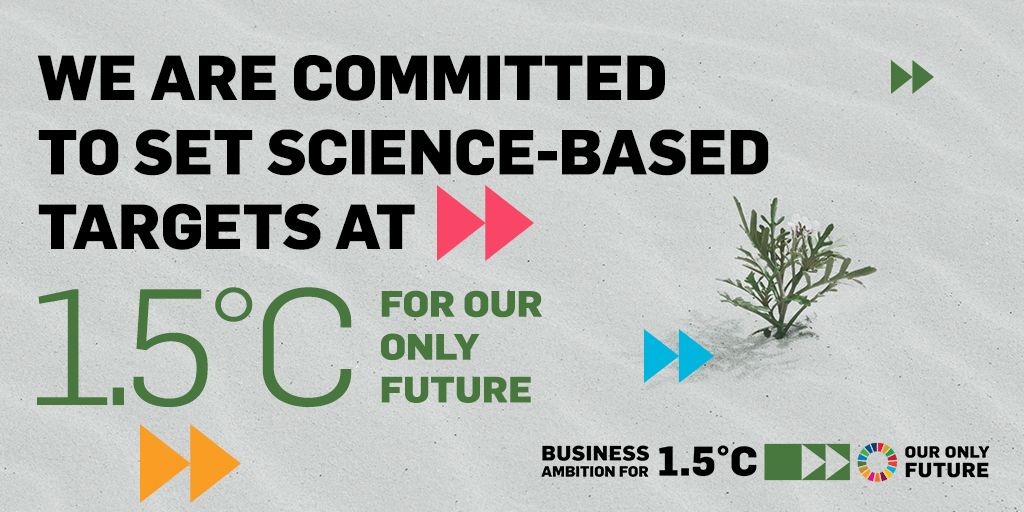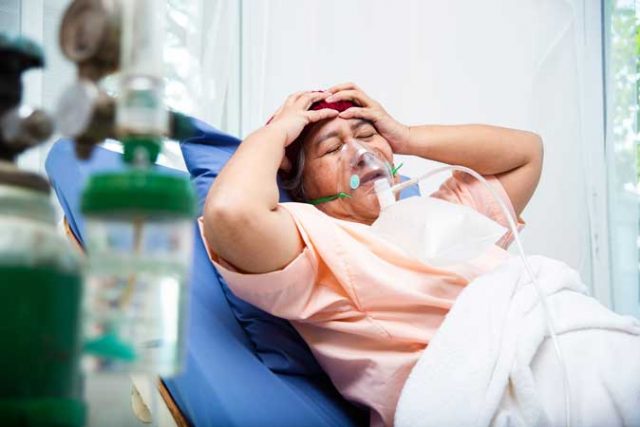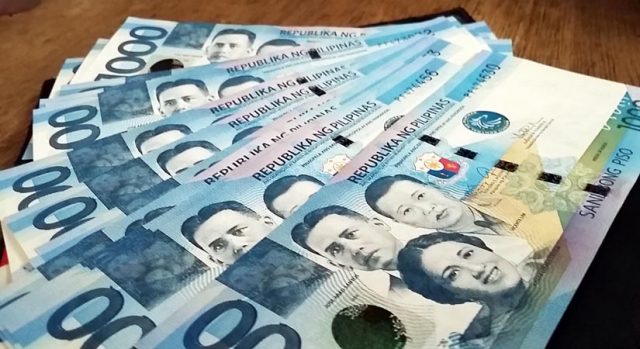Globe 1st PH company to set science-based goals for climate action
Stepping up its advocacy for climate action, Globe became the first and only Philippine company listed by the Science-Based Target initiative (SBTi) to commit to Business Ambition for 1.5 and has officially joined as a participant of the Race to Zero. The company has been a supporter of the #RacetoZero global campaign, spearheaded by the United Nations Framework Convention on Climate Change (UNFCCC) and COP26 Presidency, and the GSMA, an international mobile industry body, since its launch in 2020.
Globe’s commitment to establish science based targets and net-zero emissions by 2050 are in line with the Paris Agreement and #RacetoZero Campaign. The Paris agreement aims to limit global warming to 1.5 degrees Celsius compared to pre-industrial levels. Race to Zero is the UN-backed global campaign rallying non-state actors – including companies, cities, regions, financial and educational institutions – to take rigorous and immediate action to halve global emissions by 2030 and deliver a healthier, fairer zero carbon world by 2050.
All members are committed to the same overarching goal of reducing emissions across all scopes swiftly and fairly in line with the Paris Agreement, with transparent action plans and robust near-term targets. Led by the High-Level Climate Champions for Climate Action – Nigel Topping and Gonzalo Muñoz – Race To Zero mobilizes actors outside of national governments to join the Climate Ambition Alliance, which was launched at the UNSG’s Climate Action Summit 2019 by the President of Chile, SebastiánPiñera.
Its sibling campaign – Race to Resilience – was launched at the 2021 Climate Adaptation Summit. It is the UN-backed global campaign to catalyse a step-change in global ambition for climate resilience, putting people and nature first in pursuit of a resilient world where we don’t just survive climate shocks and stresses, but thrive in spite of them.
“We recognize the critical need to take action now to counter climate change. The imminent crisis is already threatening people, businesses, and economies worldwide. Companies like ours have a vital role to play, utilizing innovations, technologies, and expertise to decarbonize our operations and serve as a guidepost for other organizations to follow,” said Ernest L Cu, Globe President and CEO.
Over the next 24 months, Globe will set verifiable science-based targets through SBTi, which will independently assess the company’s direct and indirect emissions reduction targets. SBTi enables private companies to set science-based emission reduction targets. It is a partnership between CDP, the United Nations Global Compact, World Resources Institute (WRI), and the World Wide Fund for Nature (WWF). Direct emissions include fuel combustion on-site from owned vehicles and generator sets, while indirect emissions cover electricity purchases and use of the organization.
Paul Simpson, CEO of CDP, one of SBTi’s partners, said: “The science is clear: to limit the catastrophic impacts of climate change, we must ensure warming does not exceed 1.5°C. The ambition is high, but it’s achievable — and science-based targets give companies a roadmap for getting there. Corporations worldwide have an unprecedented opportunity to be at the very forefront of the transition to a net-zero economy — and there is no time to lose.”

Globe has been making significant inroads towards its sustainability goals in recent years. Since 2019, the company has shifted to buying energy directly from power plants producing renewable energy. Today, its headquarters in Taguig, together with six offices and facilities in Makati, Quezon City, Tarlac, and Cebu, are powered by renewables. More locations are scheduled to start running on alternative sources of energy.
Likewise, the company has deployed over 7,400 Green Network Solutions such as hybrid generators, free cooling systems, and lithium-ion batteries to reduce its carbon footprint while opting for renewable energy solutions like solar panels and fuel cells at its cell sites.
These initiatives complement the company’s continued implementation of the internationally-recognized Environmental Management System (ISO 14001:2015) under the Integrated Management Systems (IMS). IMS also covers process quality and occupational health and safety across the organization.
To ensure best-in-class sustainability practices, Globe, early this year, announced its support of the Task Force on Climate-Related Financial Disclosure (TCFD) which forms the foundation of the company’s climate change strategy moving forward.
“Business as usual is no longer an option. Setting and working towards science-based targets will help protect our consumers and us against future disruptions. The zero-carbon transformation of Globe’s business is already unlocking many economic opportunities, enhancing competitiveness, creating jobs, and sustainable growth. Doing good makes good business sense,” Cu added.
From waste management to electronic SIM cards to cashless transactions, the company’s wide range of sustainability programs make operations more efficient and produce new revenue streams.
This commitment coincides with the Philippine Environment Month. In line with this celebration, Globe is encouraging Filipinos to take part in climate action by properly disposing of electronic waste (e-waste). Globe At Home rewards its customers who swap their existing devices in exchange for new, advanced WiFi units with its “Swap and Save” campaign. Customers will receive a 500-peso discount for Globe MyFi LTE-Advanced and Home Prepaid WiFi LTE-Advanced devices when they drop off their existing prepaid Globe MyFi, WiFi stick or Home Prepaid WiFi at any of the 48 participating Globe Stores on or before August 21 this year.
Globe’s SBTi commitment supports the United Nations Sustainable Development Goals (UN SDG), specifically UN SDG No. 13 calling for urgent action to combat climate change and its impacts.
To learn more about how to create a Globe of Good and make a difference visit https://www.globe.com.ph/about-us/sustainability.html.












